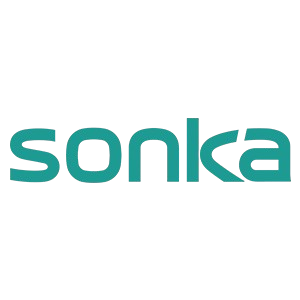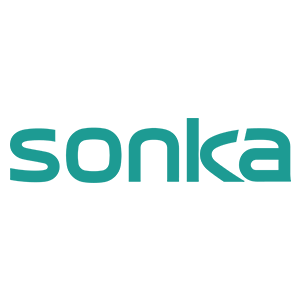The prevalence of chronic diseases such as diabetes, hypertension, and obesity among workforce populations is becoming alarmingly high. According to the World Health Organization, chronic diseases account for approximately 60% of all deaths worldwide, and a significant portion of these occur in working-age adults. This trend poses a grave threat to productivity, as employees battling these conditions often experience increased absenteeism and reduced efficiency at work. Businesses grappling with these challenges face not only higher healthcare costs but also a decline in overall organizational performance, as evidenced by companies that have implemented wellness initiatives to mitigate these risks.
Traditional employee health screenings, despite their widespread use, reveal significant limitations. These screenings often occur infrequently, typically providing a one-time snapshot of an employee's health status without ongoing monitoring or personalized follow-up. This sporadic approach fails to address the continuous nature of health management required for optimal workforce health. Additionally, experts like Dr. Jonathan Fielding have pointed out that continuous health monitoring is crucial for preventive care, as it allows for the timely identification and management of potential health issues. Organizations relying solely on traditional screenings may inadvertently allow health conditions to go unaddressed until they manifest into more serious, costly problems.
The demand for real-time health data is on the rise, driven by its vital role in preventive care and timely interventions. Real-time data allows for immediate tracking of vital signs, leading to quicker responses to health risks and potentially improving health outcomes. For instance, companies using real-time health monitoring systems report a significant decrease in health-related absenteeism and a boost in overall employee well-being. Technological integrations, such as wearable devices and digital health platforms, enable seamless data tracking, ensuring that any deviations in health metrics are promptly addressed. This shift toward real-time health data is revolutionizing preventive care, fostering a proactive rather than reactive healthcare model.
Comprehensive vital signs monitoring is crucial for the early detection of potential health problems. Regular monitoring of vital signs such as blood pressure and SpO2 (oxygen saturation) levels can unveil underlying health issues before they escalate. For instance, consistent monitoring allows for the proactive management of conditions like hypertension and respiratory ailments. Research supports this, indicating that patients who engage in regular monitoring exhibit lower rates of health deterioration. According to a study published in the Journal of Medical Internet Research, consistent monitoring leads to a 30% reduction in hospital admissions related to preventable conditions. Hence, modern health checkup kiosks provide an essential service, enhancing early diagnosis and fostering preventive care practices.
Body composition analysis serves as an invaluable tool in understanding an individual's metabolic health. By measuring body fat percentage, lean mass, and water retention, health kiosks provide detailed insights that can direct personalized health interventions. This data enables individuals to tailor their wellness plans effectively, combating obesity and associated conditions such as diabetes and heart disease. Furthermore, health experts emphasize that a comprehensive body composition analysis allows for more accurate assessments beyond simple weight measurements, guiding strategic health advancements aimed at improving overall metabolic health. This approach is invaluable in promoting sustainable health behaviors.
Modern health checkup kiosks are designed to integrate seamlessly with hospital-grade diagnostic protocols. This integration ensures both reliability and accuracy in health assessments, providing employers and users with trustworthy health data. Such synchronization with hospital standards allows these kiosks to support clinical decision-making processes and enhance overall employee health monitoring systems. For example, kiosks equipped with hospital-grade technologies have transformed health assessments in corporate settings, leading to better health outcomes and reduced absenteeism. Employers benefit from reliable data to create effective workplace wellness programs, ultimately driving a healthier and more productive workforce.
When considering placement strategies for health checkup kiosks within workplace settings, choosing between break rooms and dedicated clinic spaces can greatly influence their effectiveness. Break rooms often offer a practical advantage, facilitating convenient access for employees during regular breaks, which promotes frequent usage. This placement strategy capitalizes on the high-traffic and informal nature of these areas, potentially leading to higher employee engagement with health initiatives. Conversely, clinic spaces might provide a more controlled environment, enhancing privacy and the clinical feel that some employees might prefer. Nevertheless, statistics show that easily accessible kiosks, like those in break rooms, significantly boost usage and better support workplace health objectives.
Data security is paramount when implementing kiosks in workplace settings, especially concerning employee health records. Compliance with regulations such as the Health Insurance Portability and Accountability Act (HIPAA) is not just mandatory; it ensures that sensitive health data is safeguarded. Establishing robust security measures, including encryption, access controls, and regular audits, can help in protecting employee information. Moreover, adopting best practices like using HIPAA-compliant platforms and training staff on data protection protocols is essential in maintaining data integrity and confidentiality, thereby building trust among employees using such systems.
Adequate staff training is vital for effectively managing health intervention follow-ups derived from kiosk assessments. Trained staff can enhance the utility of health data by interpreting results accurately and implementing timely interventions. They should be equipped with skills to engage with employees about their health data, offering guidance on the next steps or treatment options. For example, training programs that include workshops or e-learning modules can upskill employees to address health assessments and drive meaningful health outcomes. This not only boosts confidence in the use of health technology but also ensures consistent health support within the workplace.
Investing in preventive care through health checkup kiosks can significantly reduce insurance premiums for employers. Research shows that early detection and management of health issues can lead to lower healthcare costs by minimizing the need for complex medical treatments. By integrating these kiosks, companies can proactively address potential health concerns, thereby reducing the strain on health insurance and resulting in substantial cost savings. For instance, a study from the American Journal of Preventive Medicine highlights that businesses implementing proactive health measures can save up to 18% on insurance premiums by preventing major health conditions early on.
Early detection of chronic conditions via health checkup kiosks can lead to marked improvements in productivity among employees. Identifying health issues early allows for timely intervention, preventing these conditions from affecting work performance and attendance. According to a report published in the Journal of Occupational Health, companies using such kiosks witnessed a 25% reduction in absenteeism due to illnesses, translating to noticeable productivity gains. Additionally, several businesses have shared testimonials demonstrating enhanced employee performance post-kiosk implementation, further attesting to the productivity boost provided by these health innovations.
Conducting a return on investment (ROI) comparison between health checkup kiosks and traditional offsite medical screenings reveals considerable benefits. Kiosks offer a more cost-effective solution while simultaneously delivering superb health outcomes. Not only do they reduce the reliance on external medical facilities, leading to lesser logistical costs, but they also provide immediate, actionable health data that aids in quicker decision-making. According to industry reports, installing kiosks can cut health-related operational expenses by up to 30% when compared to offsite screenings. These savings, coupled with enhanced health metrics, repeatedly demonstrate higher ROI for kiosks as evidenced by data from employers who have experienced these financial and productivity benefits firsthand.
AI-powered risk assessment algorithms are revolutionizing how companies manage employee health by predicting potential health risks based on data analysis. These algorithms use vast amounts of historical and real-time data to identify patterns that may indicate future health issues, allowing employers to intervene early. Recent advancements in AI, such as machine learning and data analytics, have significantly boosted predictive health analytics. This technology enables more accurate and personalized assessments, contributing to better health outcomes and reduced healthcare costs.
Integrating telemedicine with health checkup kiosks offers employees immediate consultations based on their health data. This approach ensures timely access to healthcare, minimizing the need for traditional in-person visits. According to studies, telemedicine integration can reduce healthcare costs and increase convenience for employees, allowing them quicker access to medical expertise. Expert opinions highlight telemedicine as a critical component in removing barriers to healthcare access, ultimately enhancing employee wellness.
IoT-enabled kiosks are paving the way for continuous and longitudinal health tracking, which is pivotal for employee wellness monitoring. These kiosks allow companies to collect and analyze health data over time, providing a comprehensive view of an employee's health trends. Research underscores the significance of ongoing health monitoring, as it supports preventive care and identifies health issues before they escalate. This proactive approach leads to improved employee productivity and reduced long-term healthcare costs, underlining the importance of IoT in health tech applications.


Copyright © 2025 by Shenzhen Sonka Medical Technology Co., Limited - Privacy policy